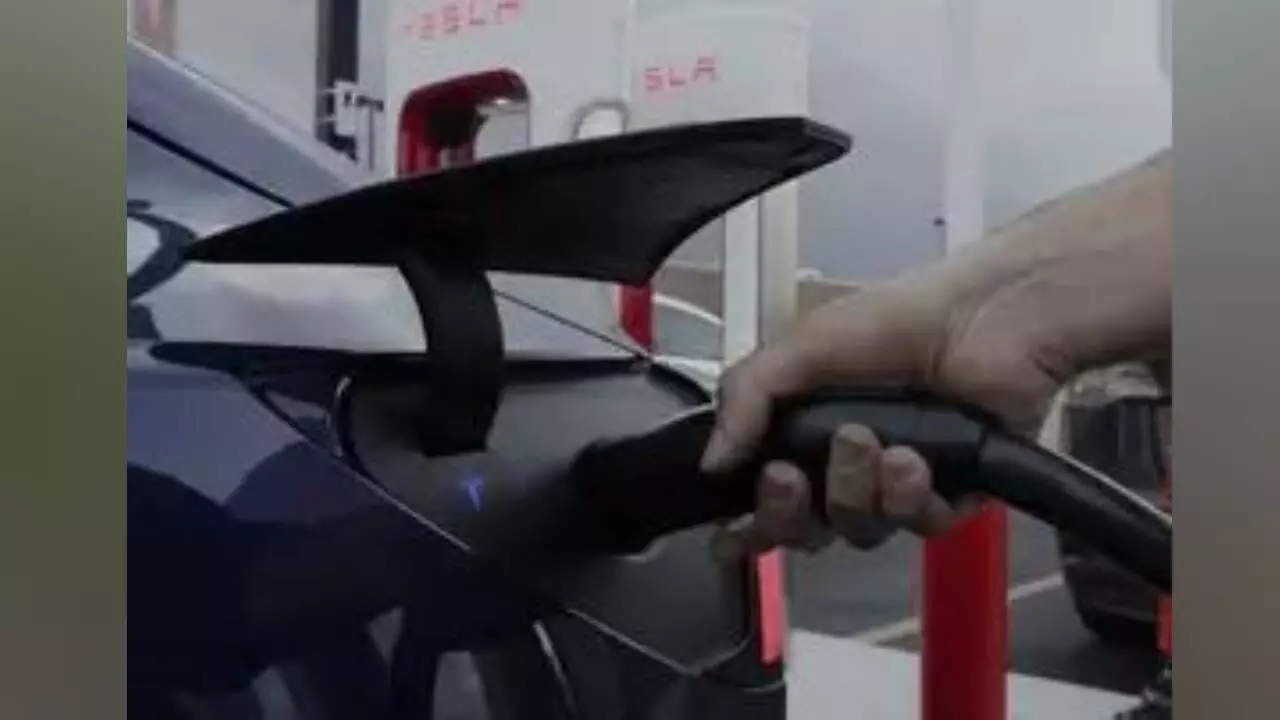India can save $106-bn import bill from transition to EVs
Complete shift from older vehicles to electric vehicles in 44 Indian cities with a population of 10 lakh could avoid 11.5 tonne of PM2.5 emissions every day by 2035: TERI study
image for illustrative purpose

New Delhi: A complete shift from older vehicles to electric vehicles (EVs) in 44 Indian cities with a population of at least 10 lakh could avoid 11.5 tonne of PM2.5 emissions every day by 2035 and reduce greenhouse gas emissions by 61 million tonne (MT) of carbon dioxide equivalent, according to a new study.
The study, published by The Energy and Resources Institute (TERI), said it would also save more than 51 billion litres of petrol and diesel and reduce India’s oil import bill by an estimated Rs9.17 lakh crore ($106.6 bn) by 2035. The authors said the number of older vehicles in these cities could grow from 4.9 million (49 lakh) in 2024 to 7.5 million (75 lakh) by 2030. The transport sector accounts for up to 24 per cent and 37 per cent in the winter season to the ambient PM10 and PM2.5 concentrations of different Indian cities, respectively, according to TERI. Older vehicles are a major contributor to air pollution in India’s big cities.
The study found that older diesel buses are the biggest polluters among all vehicle types. Age restrictions on buses alone could help reduce 50 per cent of PM2.5 and 80 per cent of nitrogen oxide emissions by 2030, it said. The authors proposed a staggered plan to phase out 11.4 million (1.14 crore) vehicles between 2030 and 2035 and recommended either replacing all these with electric vehicles (EVs) or adopting a combination of electric and CNG vehicles. They said a complete shift to EVs could avoid 11.5 tonne of PM2.5 emissions every day by 2035 and reduce greenhouse gas emissions by 61 million tonne of carbon dioxide equivalent. It could also create around 3.7 lakh new jobs in the electric vehicle and renewable energy (RE) sectors.

